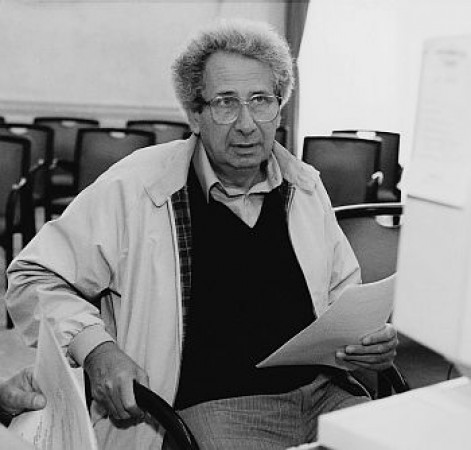
26 August 1926, Eger – 12 November 1998, Budapest
György Kroó's father owned a bookshop in Eger, thus childhood was dominated by books and music. Their settled, middle class, small-town existence was swept away by the catastrophe of the Second World War. The family was taken to a concentration camp, the seventeen-year old young man, called up for service in a labour brigade, lost his parents and brother. György Kroó, left alone, had to climb out of the never to be forgotten deep pit of this tragedy by his own strength, to create his life's work in the service of forgiveness and humanity. He entered the Music Academy as a violinist in 1949, for three years studying with Dezső Rados; in 1951 he registered as a student in the newly founded musicology department of the Academy. It was here that his musical ambitions developed, inspired and guided by such legendary teachers as Zoltán Kodály, Bence Szabolcsi, Lajos Bárdos, Dénes Bartha, Antal Molnár and Zoltán Gárdonyi. He had a particularly close relationship with Bence Szabolcsi, who almost found in him the son he had lost in the war, whereas Kroó found in his professor a new intellectual father.
Kroó began his new, highly demanding career in 1957, with a freshly gained diploma in his pocket. As editor, and later senior editor of the Music Department of Hungarian Radio, he organised popular music education on radio, making it a successful radio genre. From this time onwards right to the end of his life he edited and made such series as The Composition of the Week and Let's Listen to it Together. He was the editor in charge of radio's New Musical Journal, in which for decades he reviewed the most important concerts of the week. His reviews were characterised by sure judgment, openness to talent and enthusiasm. Selections from his music criticisms were published in two volumes, in 1981 and 1999. He wrote almost without interruption. His books and articles deal with different periods of music history. (Schumann, 1958; Berlioz, 1960; Bartók's works written for the stage, 1962; The "liberating" opera, 1966; Wagner, 1968; Guide to Bartók, 1971; The 25 or 30 years of Hungarian composition, 1971; Aladár Rácz, 1979; Heilawac – Wagner studies, 1983; The first year of pilgrimage – Liszt study, 1986; Bence Szabolcsi I-II, 1994).
György Kroó was not a specialist, ivory tower scholar. His wide sphere of interests, imposing knowledge of languages, rapid and intensive absorption of music, theatre, literature and the visual arts equipped him to make frequent pronouncements on important subjects and interconnections. There were no subject barriers as far as he was concerned: he could give enjoyable radio lectures on the most complex matters, and even seemingly simple questions moved him to vast works of scholarship. He felt music in his bones, and could transmit his sensations fully both verbally and in writing. This was the secret of his remarkably suggestive teaching (from 1961 as teacher of music history and from 1972 to the end of his life as head of the musicology department). He had a key to the soul, that certain sixth sense, which helped him to perceive greater depths than others. He taught generations, not only in the musicology department, but also – instrumental musicians – in his general music history classes. His inspired teaching made a lasting impression on his students.
He was awarded the Erkel Prize (1963), the SZOT Prize (1970), and the Széchenyi Prize (1995).
A. B.


